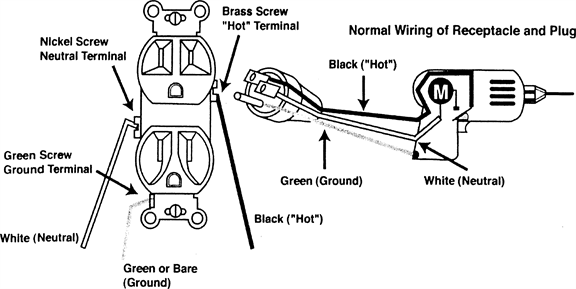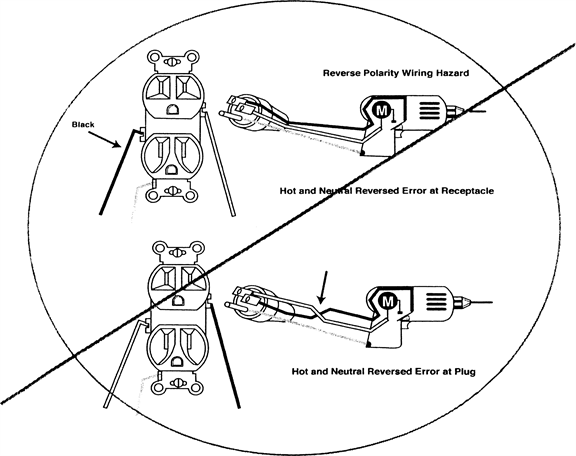PDFWAC 296-800-28040
Make sure electrical equipment is effectively grounded.
(1) You must make sure the path to ground from circuits, equipment, and enclosures is permanent, continuous, and effective.
(2) You must make sure exposed noncurrent-carrying metal parts of cord- and plug-connected equipment that may become energized are grounded under any of the following conditions:
(a) If operated at over 150 volts to ground, except for guarded motors and metal frames of electrically heated appliances if the appliance frames are permanently and effectively insulated from ground.
(b) Equipment in hazardous locations. (WAC 296-24-95613)
(c) If the equipment is of the following types:
(i) Hand-held motor-operated tools.
(ii) Stationary and fixed motor-operated tools.
(iii) Light industrial motor-operated tools.
(iv) Refrigerators.
(v) Freezers.
(vi) Air conditioners.
(vii) Clothes washers and dryers.
(viii) Dishwashers.
(ix) Electrical aquarium equipment.
(x) Sump pumps.
(xi) Hedge clippers.
(xii) Electric lawn mowers.
(xiii) Electric snow blowers.
(xiv) Wet scrubbers.
(xv) Tools likely to be used in damp or wet locations.
(xvi) Appliances used by employees standing on the ground, on metal floors or working inside of metal tanks or boilers.
(xvii) Portable hand lamps.
(xviii) Portable and mobile X-ray and associated equipment.
(xix) Tools likely to be used in wet and conductive locations.
Note: | Grounding can be achieved by using tools and appliances equipped with an equipment grounding conductor (three-prong plug and grounded electrical system). |
 |
(3) You must make sure exposed metal parts of fixed equipment that do not conduct electricity, but may become energized, are grounded under any of the following conditions:
(a) If the equipment is in a wet or damp location and is not isolated.
(b) If within 8 feet vertically or 5 feet horizontally of ground or grounded metal objects and subject to employee contact.
(c) If in electrical contact with metal.
(d) If in a hazardous (classified) location.
(e) If supplied by a metal-clad, metal-sheathed, or grounded metal raceway wiring method.
(f) If equipment operates with any terminal at over 150 volts to ground.
(4) You must make sure a conductor used as a grounded conductor is identifiable and distinguishable from all other conductors.
(5) You must make sure a conductor used as an equipment grounding conductor is identifiable and distinguishable from all other conductors.
(6) You must make sure grounded conductors are not attached to any terminal or lead so as to reverse polarity of the electrical outlet or receptacle. See illustration - Examples of wiring.
(7) You must make sure grounding terminals or grounding-type devices on receptacles, cords, connectors, or attachments plugs are not used for purposes other than grounding.
Examples of Wiring
 |
CORRECT WIRING |
 |
INCORRECT WIRING |
[Statutory Authority: RCW 49.17.010, 49.17.040, 49.17.050, and 49.17.060. WSR 18-22-116, § 296-800-28040, filed 11/6/18, effective 12/7/18. Statutory Authority: RCW 49.17.010, 49.17.040, 49.17.050, 49.17.060, and chapter 49.17 RCW. WSR 12-16-064, § 296-800-28040, filed 7/31/12, effective 9/1/12. Statutory Authority: RCW 49.17.010, [49.17].040, and [49.17].050. WSR 02-16-047, § 296-800-28040, filed 8/1/02, effective 10/1/02; WSR 01-23-060, § 296-800-28040, filed 11/20/01, effective 12/1/01; WSR 01-11-038, § 296-800-28040, filed 5/9/01, effective 9/1/01.]